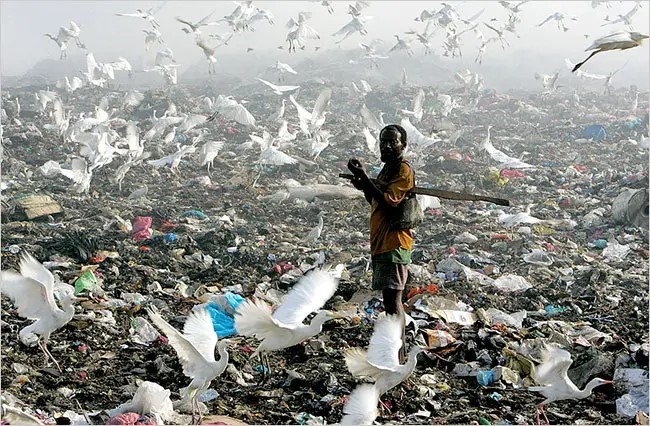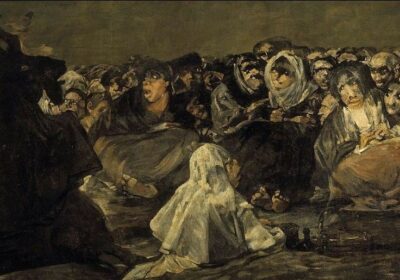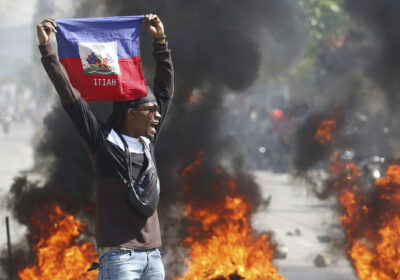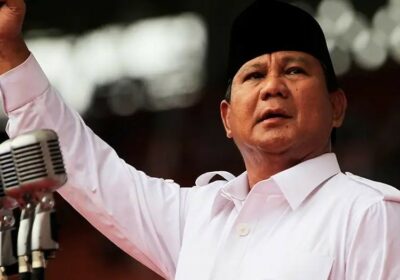EVEN GABON FLIES TO MOSCOW

Yet another coup d’état in Africa, the eighth since 2020 in West and Central Africa: after Mali (two in 9 months), Chad, Guinea, Sudan, Burkina Faso (two in 8 months) and lastly Niger. Yesterday, from the television station Gabon 24, comes the announcement of a new subversion of democratic power.
One of the soldiers, speaking in front of the cameras on behalf of a self-styled ‘Committee for Transition and the Restoration of Institutions’, announced: ‘Faced with an irresponsible and unpredictable government, whose actions result in a deterioration of social cohesion that risks leading the country into chaos, we have decided to defend peace by putting an end to the current regime’.
The general elections, which took place just a few days ago, on 26 August, and which saw incumbent President Ali Bongo Odimba in power for 14 years win a third term with 64.27% of the vote, are cancelled by the new junta. The dissolution of the government, the Senate, the National Assembly and the Constitutional Court and the closure of the country’s borders ‘until further notice’ are also announced. The coup leaders inform that Bongo Odimba is under house arrest surrounded by ‘family members and doctors’. The deposed president’s son, Noereddin Bongo Valentin, was arrested along with six others for ‘high treason’.
In the pictures that are doing the rounds of the world, the ‘green berets’, or Presidential Guards, evidently implicated in the coup, are recognisable. Meanwhile, the junta has appointed General Brice Oligui Nguema – who was once the bodyguard of Bongo’s late father, the former ruler of Gabon – as transitional leader. Ali Bongo, 64, succeeded his father, Omar Bongo, who died of cardiac arrest in 2009 after almost 42 years in power, seven years after Gabon declared independence from France.
The elderly leader ruled for many years using an iron fist in a one-party system until 1991, but remained even after a dictatorship. His son, Ali Bongo Odimba, began his political career in 1981 as Minister of Foreign Affairs and as Congressman and Minister of Defence before becoming President in 2009. But all of Ali Bongo’s election victories produce heated clashes and accusations of fraud, even triggering violent nationwide protests[1] , such as these in August. According to the people, the real winner is Albert Ondo Ossa, and in 2019 the protests even result in a failed coup d’état[2]
As soon as news of the coup spread, the streets of Libreville – Gabon’s capital – and Port-Gentil filled with celebrating people. Despite a gradual transition to a democratic system, the Bongo family has never enjoyed popular esteem: Gabon is rich in natural resources, in particular oil and cocoa, and despite having one of the highest per capita incomes in sub-Saharan Africa (almost $9000), more than a third of its population lives in poverty, while the Bongo family, in addition to numerous offshore bank accounts, owns luxury villas and mansions in Paris, London and around the world, planes, boats and works of art – all the result of ‘misappropriation of public funds’[3] .

A Gabonese citizen searching for food in a large garbage dump[4]
Most of the wealth is concentrated in the hands of the very powerful ruling clan. Decades of cronyism and corruption favouring multinationals and French politicians (contemptuously referred to as Françafrique) have created a sordid antipathy not only towards the regime, but also towards those who have supported it for almost half a century: Paris. In April this year, on a visit to Libreville, President Macron promised an end to ‘the era of Françafrique’, trying to present France as a neutral actor and partner for African governments. But these things have already been said, and never kept[5] .
Gabon is home to 7500 Frenchmen, 400 of whom are military personnel of an air unit that provides reception and logistical support to aircraft on detachment or in transit in the region[6] , as well as 81 subsidiaries of French companies such as Total, Eiffage, Bolloré, Havas, Air Liquide, Eramet – which extracts, transforms and exports manganese for a total turnover of around three billion euros annually[7] : for France, Gabon represents the eighth destination of its investments[8] . In reality, French interests in Gabon are declining, the uranium deposits are being depleted, and the French agro-industry has lost ground to Asian and Moroccan investments[9] .
This means that this umpteenth coup d’état is the sign of a profound change sweeping the whole of Africa, which Macron calls “an epidemic of coups d’état”, “a world going mad”[10] where the “baroque alliance between alleged pan-Africanists and neo-imperialists” unfolds, who easily exploit the accumulated resentment against the former French colonial power to create consensus[11] . As in Niger, where interests are far greater – one country after another, Russia’s preponderant influence takes the place of the French one.
Condemnation of the coup came yesterday from the African Union, representing 55 member states: its president, Moussa Faki Mahamat, said that the seizure of power by force was a ‘flagrant violation of the legal and political instruments of the African Union’ and called on the Gabonese army to re-establish democratic constitutional order as soon as possible. The UN Secretary General, Antonio Guterres, expressed concern about the ‘serious violations of fundamental freedoms’. US State Department spokesman Matthew Miller said the US was ‘strongly opposed to military seizures or unconstitutional transfers of power’ and urged the coup plotters to ‘preserve civilian rule’. The condemnations were joined by several western countries as well as the European Union. Spain will ‘evaluate’ its military missions in Africa following the recent coups.
But this is talk. The truth is that at the end of July, in Libreville, the whole of Africa met to discuss shifting alliances in the direction of Moscow[12] . A few hours ago, the junta appointed General Brice Clotaire Oligui Nguema, a cousin of President Bongo, but strongly linked to Russian diplomacy, as president[13] . Already in February 2023, at a meeting in Libreville, the countries collaborating in Nkok (a new tax haven, located in Gabon, designed only for African countries[14] ) predicted a fundamental strategic change in the orientation of African mining policy – in the direction of Moscow, of course[15] .
FRA035
[1] https://edition.cnn.com/2009/WORLD/africa/09/03/gabon.post.election.violence/index.html
[2] https://edition.cnn.com/2019/01/07/africa/gabon-army-seizes-country/index.html
[3] https://www.mediapart.fr/journal/international/160215/la-justice-enquete-sur-l-heritage-secret-d-omar-bongo
[4] https://www.nytimes.com/2009/09/15/world/africa/15libreville.html
[5] https://catalystmcgill.com/emmanuel-macron-la-fin-de-la-francafrique/
[6] https://www.europe1.fr/international/coup-detat-au-gabon-pourquoi-les-armees-francaises-ne-sont-pas-ciblees-par-les-putschistes-4201032
[7] https://www.bfmtv.com/economie/entreprises/bollore-colas-eiffage-total-de-nombreuses-entreprises-francaises-sont-presentes-au-gabon_AV-202308300375.html
[8] https://www.bfmtv.com/economie/entreprises/bollore-colas-eiffage-total-de-nombreuses-entreprises-francaises-sont-presentes-au-gabon_AV-202308300375.html
[9] https://www.francetvinfo.fr/monde/afrique/gabon/coup-d-etat-au-gabon-quels-sont-les-interets-economiques-et-militaires-de-la-france-dans-ce-pays-d-afrique_6033458.html
[10] https://www.bfmtv.com/politique/elysee/un-monde-qui-devient-un-peu-fou-macron-justifie-ses-nombreux-deplacements-a-l-etranger_AN-201805310061.html
[11] https://www.financialafrik.com/2023/08/28/sans-la-france-nous-ne-parlerions-pas-aujourdhui-ni-de-mali-ni-de-burkina-faso-ni-de-niger-estime-emmanuel-macron/
[12] https://www.africanews.com/2023/07/27/whats-at-stake-at-the-russia-africa-summit-business-africa//
[13] https://www.france24.com/en/africa/20230830-gabon-coup-attempt-follows-military-takeovers-in-former-french-colonies-in-africa ; https://www.theafricareport.com/320499/who-is-brice-clotaire-oligui-nguema-the-man-who-toppled-ali-bongo-ondimba/
[14] https://www.ohchr.org/en/press-releases/2019/04/un-human-rights-experts-raise-alarm-about-situation-indian-migrant-workers ; https://investmentpolicy.unctad.org/investment-policy-monitor/measures/3935/creates-a-new-special-economic-zone—the-mpassa-lebombi
[15] https://www.theafricareport.com/282635/exclusive-gabon-minister-sees-raw-material-export-bans-as-possible-value-chain-lever/?utm_source=linkedin.com&utm_campaign=post_articles_linkedin_08_02_2023&utm_medium=social




Leave a Reply